Autocratisation and universal health coverage: synthetic control study
- PMID: 33097492
- PMCID: PMC7582133
- DOI: 10.1136/bmj.m4040
Autocratisation and universal health coverage: synthetic control study
Abstract
Objective: To assess the relation between autocratisation-substantial decreases in democratic traits (free and fair elections, freedom of civil and political association, and freedom of expression)-and countries' population health outcomes and progress toward universal health coverage (UHC).
Design: Synthetic control analysis.
Setting and country selection: Global sample of countries for all years from 1989 to 2019, split into two categories: 17 treatment countries that started autocratising during 2000 to 2010, and 119 control countries that never autocratised from 1989 to 2019. The treatment countries comprised low and middle income nations and represent all world regions except North America and western Europe. A weighted combination of control countries was used to construct synthetic controls for each treatment country. This statistical method is especially well suited to population level studies when random assignment is infeasible and sufficiently similar comparators are not available. The method was originally developed in economics and political science to assess the impact of policies and events, and it is now increasingly used in epidemiology.
Main outcome measures: HIV-free life expectancy at age 5 years, UHC effective coverage index (0-100 point scale), and out-of-pocket spending on health per capita. All outcome variables are for the period 1989 to 2019.
Results: Autocratising countries underperformed for all three outcome variables in the 10 years after the onset of autocratisation, despite some improvements in life expectancy, UHC effective coverage index, and out-of-pocket spending on health. On average, HIV-free life expectancy at age 5 years increased by 2.2% (from 64.7 to 66.1 years) during the 10 years after the onset of autocratisation. This study estimated that it would have increased by 3.5% (95% confidence interval 3.3% to 3.6%, P<0.001) (from 64.7 to 66.9 years) in the absence of autocratisation. On average, the UHC effective coverage index increased by 11.9% (from 42.5 to 47.6 points) during the 10 years after the onset of autocratisation. This study estimated that it would have increased by 20.2% (95% confidence interval 19.6% to 21.2%, P<0.001) (from 42.5 to 51.1 points) in the absence of autocratisation. Finally, on average, out-of-pocket spending on health per capita increased by 10.0% (from $4.00 (£3.1; €3.4) to $4.4, log transformed) during the 10 years after the onset of autocratisation. This study estimated that it would have increased by only 4.4% (95% confidence interval 3.9% to 4.6%, P<0.001) (from $4.0 to $4.2, log transformed) in the absence of autocratisation.
Conclusions: Autocratising countries had worse than estimated life expectancy, effective health service coverage, and levels of out-of-pocket spending on health. These results suggest that the noticeable increase in the number of countries that are experiencing democratic erosion in recent years is hindering population health gains and progress toward UHC. Global health institutions will need to adjust their policy recommendations and activities to obtain the best possible results in those countries with a diminishing democratic incentive to provide quality healthcare to populations.
© Author(s) (or their employer(s)) 2019. Re-use permitted under CC BY-NC. No commercial re-use. See rights and permissions. Published by BMJ.
Conflict of interest statement
Competing interests: All authors have completed the ICMJE form at www.icmje.org/coi_disclosure.pdf and declare: support the Bill and Melinda Gates Foundation and Bloomberg Philanthropies; no financial relationships with any organisations that might have an interest in the submitted work in the previous three years, no other relationships or activities that could appear to have influenced the submitted work.
Figures

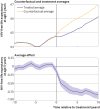
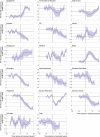
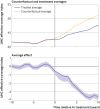
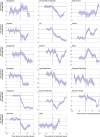

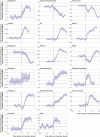
References
-
- Lührmann A, Lindberg SI. A third wave of autocratization is here: what is new about it? Democratization 2019;26:1095-113. 10.1080/13510347.2019.1582029. - DOI
-
- Lührmann A, Maerz SF, Grahn S, et al. V-Dem Annual Democracy Report 2020. Autocratization Surges – Resistance Grows. Gothenburg: Varieties of Democracy Institute (V-Dem). 2020. www.v-dem.net/en/publications/democracy-reports/ (accessed 14 Jun 2020).
-
- World Health Organization Thirteenth General Programme of Work 2019−2023: promote health, keep the world safe, serve the vulnerable. WHO, 2019.
-
- UN. Transforming our World: The 2030 Agenda for Sustainable Development. Sustainable Development Knowledge Platform. 2015. https://sustainabledevelopment.un.org/post2015/transformingourworld/publ... (accessed 14 Jun 2020).
MeSH terms
LinkOut - more resources
Full Text Sources
